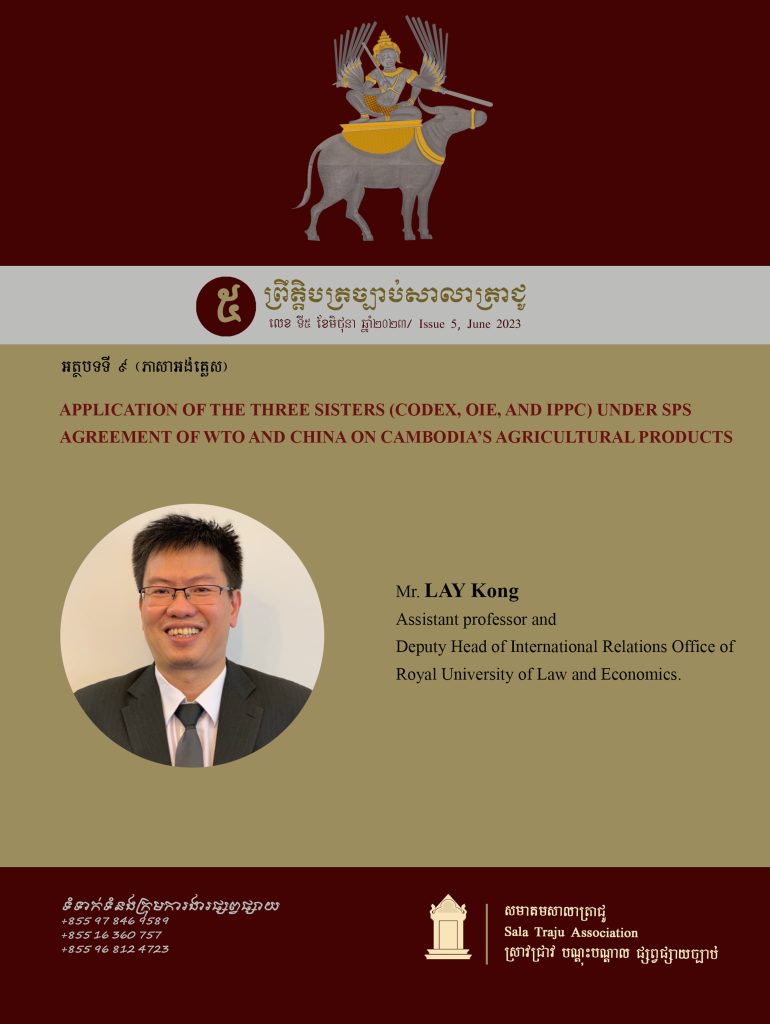
ABSTRACT
This research paper focuses on the application of the Three Sisters—Codex, OIE, and IPPCof sanitary and phytosanitary of WTO and China on Cambodia’s agricultural products in order to boost Cambodian agricultural product export to China as well as other countries. Through the research findings, it is seen that Cambodia is the member of Codex, OIE and IPPC, which is the good aspects to harmonize its sanitary and phytosanitary standards to international standards. Cambodia has a good cooperation with the Food and Agriculture Organization of the United Nations (FAO). FAO has provided technical support and training for implementing the above mentioned three sisters—Codex, OIE, and IPPC and SPS as a whole. Through its commitment, some fresh fruits such as fresh banana, mongos, etc. are qualified in term of phytosanitary requirements for the Chinese market.
Cambodia has adopted Law on Food Safety, Law on Animal Health and Production, and Law on Plants Protection and Phyto sanitation, which is the good mechanism for implementing SPS agreement.
However, regarding to the application of the Three Sisters and SPS agreement of WTO, Cambodia still lacks of proper human resources and non-human resources allocation, that is, it lacks of proper human resource planning for learning and implementing the SPS agreement. It also needs enough budget to implement the requirement standard of the SPS agreement effectively and efficiently. It needs more cooperation with international research organizations on applicating the Three Sisters and SPS. It needs more assistant from China as well as other WTO members to grow its agricultural plants with the required Chinese market and other markets as well.
Cambodia has to build enough quarantine stations along the border check points for import and export of animals as well as plants, and it also should have modern testing laboratories for testing import and export products, plants, or animals, etc.
Key words: Codex Alimentarius, the Office International des Epizootics (OIE), International Plant Protection Convention (IPPC), Sanitary and Phytosanitary (SPS), and harmonization.
